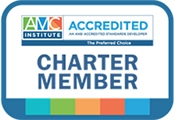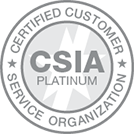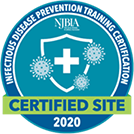Your proper execution of written English says a lot about you. This is especially true in our electronic world, where your words often precede you and you rarely get a chance to have your actual voice heard. Minding your grammar can do nothing but help you in your professional life. Whether you're your society's president or the administrator answering member correspondence, carefully tending to your words will demonstrate your intelligence and your professionalism. You may think people don't care if you misspell a word or leave out a vital comma, but these errors can undermine you in your reader's subconscious.
My hope is that this grammar backslide is due to a deterioration of society’s working knowledge about common grammar rules and language usage. I think I could take comfort that the world will be an okay place for my future grandchildren if I knew that people care, but just don’t know how to execute.
Below I’ve listed some of my favorite (or most-hated, depending on how you look at it) grammar, spelling, and word-usage mistakes. Avoid these common mistakes and you'll elevate your writing (and probably your speech, too). Always remember that no one is perfect. You'll still make mistakes; I'm sure I've made a few here. Keep your own style, too. If you want to use commas — or dashes — for emphasis, go for it! Just be sure to read everything you write out loud to ensure it makes sense. Another set of eyes never hurts either.
Commonly misused expressions
You say: "think out of the box" (this means a ready-to-go solution, like "off the shelf”)
You mean: "think outside the box"
You say: "For all intensive purposes" (those must be some serious purposes!)
You mean: "For all intents and purposes"
Common apostrophe errors
Wrong: The childrens' cheers could be heard for miles.
Right: The children's cheers could be heard for miles.
Why: Children is already plural, so you cannot add another s to it. Just add apostrophe s.
Wrong: Never judge a book by it’s cover.
Right: Never judge a book by its cover.
Why: It’s means “it is”. Period. No exceptions. If you type or write "it's", make sure you could replace it with "it is."
Subject and verb agreement
Be careful with is/are! Test your current knowledge level:
http://grammar.ccc.commnet.edu/grammar/quizzes/agreement_quiz.htm
Watch your mouth!
These common mispronunciations are NOT words!
- Lacksadaisacal (it’s lackadaisical)
- Foilage (it’s foliage)
- Irregardless (it’s regardless)
- Verbage (it’s verbiage)
- Anyways (it’s anyway)
- Supposably (it’s supposedly)
- Probally (it’s probably)
If your eyes have glazed over, visit these links another time and see what rules you’ve been breaking:
http://oxforddictionaries.com/words/better-writing.http://litreactor.com/columns/20-common-grammar-mistakes-that-almost-everyone-gets-wrong
http://www.divinecaroline.com/122444/92588-hooked-phonics-fifteen-mangled-misused
Kristin Brammell, CMP is a Meetings and Education Manager and Department Project Coordinator at Association Headquarters, Inc. (AH), a Mount Laurel, NJ-based association management company. In her 7 years at AH, Kristin has managed annual and specialty educational conferences from 100 to 1,100 attendees for both medical and professional associations. Kristin is also responsible for board and committee meetings and online educational activities. Kristin’s daily responsibilities including managing event logistics, tracking and monitoring the educational activities of 12 client sub-committees, organizing and leading conference calls, and managing multiple timelines and to-do lists for various projects and tasks. Her professional achievements include earning her Certified Meeting Professional designation in January 2011 and co-presenting a breakout session at PCMA’s Convening Leaders 2012 on the topic of affordable technology solutions. Kristin has also been invited to co-present on the same topic for the Mid-Atlantic Society of Association Executives (July 2012), the Greater Philadelphia Chapter of the Professional Convention Management Association (September 2012), and the New York Chapter of PCMA (September 2012). Kristin also presented a webinar for the Latin American Trade Show Association (AFIDA, June 2012). She received the Toastmasters International Competent Communicator Award in June 2011 for successfully completing the Toastmasters program. Kristin is involved with the Greater Philadelphia Chapter of PCMA as part of the Communications Committee.Kristin attained her undergraduate degree from Rutgers University in New Brunswick in 2005, and currently lives in southern New Jersey. Her hobbies include cooking, watching sports, and walks with her dog Duncan.




